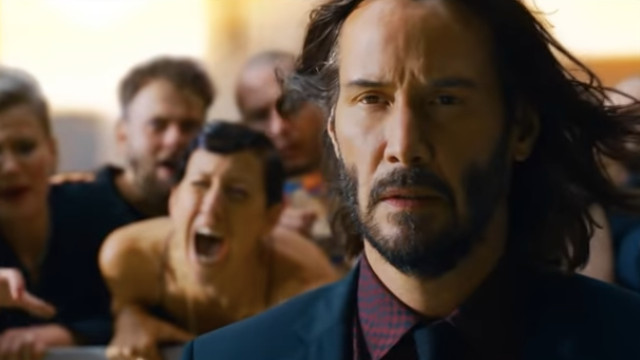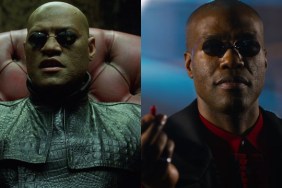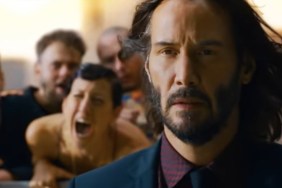The legal spat between Village Roadshow and Warner Bros. has taken an uglier turn. Last week, Village Roadshow filed a lawsuit against WB over The Matrix Resurrections’ disappointing box office performance. The suit alleges that the sequel’s day-and-date streaming release was an act of sabotage designed to not only boost HBO Max subscriber numbers, but also to “eviscerate the significant value of Village Roadshow’s intellectual property” as a whole. Additionally, Village Roadshow contends that because the film fell short of expectations, they can’t cover their share of production costs.
But in a new statement (via Deadline), Warner Bros. is refuting these allegations. You can read what the studio had to say below:
“Village’s actions have been duplicitous and this dispute is equally contrived,” the statement reads. “Village was happy to have their name on the credits of the film, traveled to the world premiere in San Francisco, and held themselves out to the media as producers on the film. But they have now reneged on their contractual obligation to pay their share of the cost of the film.”
Although its hybrid release strategy received pushback at first, WB claims that it eventually reached settlements with most of its production partners, cushioning them against revenue loss and allowing the initiative to move forward as planned. One notable example of this was Legendary Pictures, which co-financed both Dune and Godzilla vs. Kong last year. The full nature of Dune’s resolution is still a mystery. But according to reports, Legendary agreed to a “complete buyout” of their costs on Godzilla vs. Kong, which ultimately prevented a similar lawsuit between the two parties.
RELATED: Village Roadshow Sues Warner Bros. Over The Matrix Resurrections
However, WB says that Village Roadshow rejected such a deal, hoping that Resurrections’ box office gross would net them more money in the long run.
“It is notable that throughout 2021, we reached mutually acceptable agreements on all films in the 2021 slate to provide additional compensation to Talent and our partners in light of our ‘day and date’ release strategy during the COVID-19 pandemic,” added WB. “The only exception was Village, which refused to honor its commitment to pay their share of production costs, rejecting the opportunity we offered to de-risk them from any financial underperformance. Instead, Village wanted to enjoy the benefit of publicly holding themselves out as co-owners and producers while preserving a ‘free look’ at the ultimate outcome of the film performance without any financial investment on their part.”
The statement concludes with this line: “This is not how we conduct business, certainly not with trusted partners.”
What do you make of Warner Bros.’ latest statement regarding Village Roadshow’s lawsuit? Tell us what you think in the comment section below!
Recommended Reading: The Matrix Comics, Vol. 2
We are a participant in the Amazon Services LLC Associates Program. This affiliate advertising program also provides a means to earn fees by linking to Amazon.com and affiliated sites. This is also a sentence. Also this. And also that.









